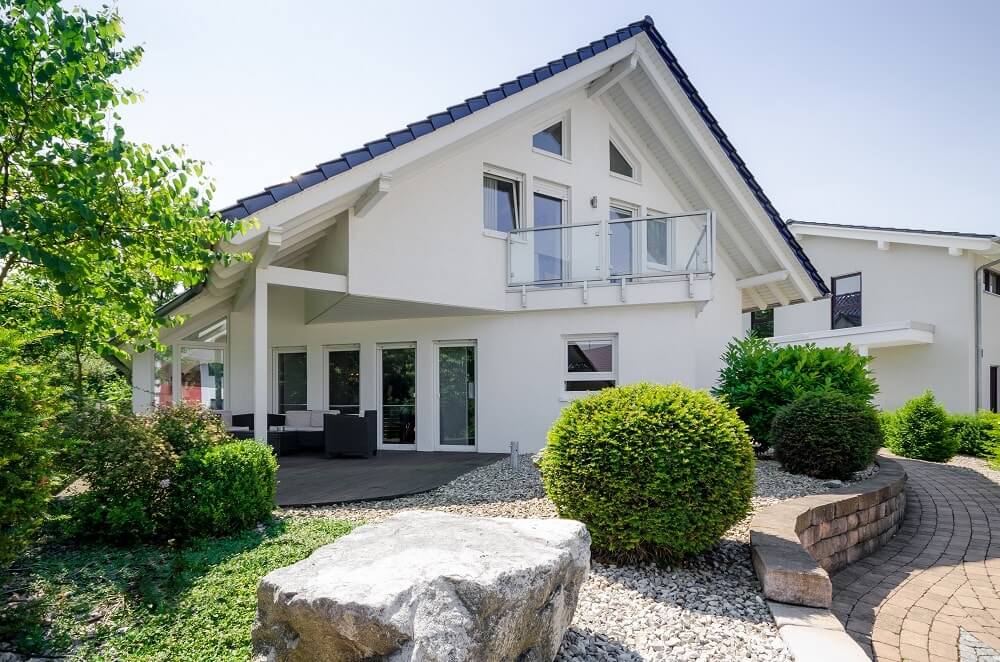

Image source: Pixel Studio Productions
Buying a home for the first time can be equal parts exciting and overwhelming. As a first-time home buyer, it’s natural to make a few mistakes along the way. Luckily, there are things you can do to avoid some common and significant mistakes when buying a home.
1) Neglecting the Home Inspection
Neglecting to properly inspect a house before closing on a sale can lead to a never ending headache of expensive repairs. Buying a house without completing an inspection could end up being one of the biggest financial mistakes of your life. Don’t risk buying a home that turns out to be a bottomless money pit.
How to avoid the mistake
Choose to set up a professional inspection of the house before you decide whether or not it’s your dream home. A thorough inspection can reveal hidden dry rot, termites, and whole range of difficult to fix issues.
2) Not Taking Neighborhood Into Consideration
When buying a new home, many people make the mistake of focusing solely on the house and not on the surrounding area. A house can always be changed with remodeling, but it’s location is permanent. If you move in and find that the location is inconvenient or the neighborhood is bad, you’re only option will be to move again.
How to avoid the mistake
Before you purchase a house, research the neighborhood and surrounding area thoroughly. Pay attention to crime rates, traffic, and how easy it is to get to work or other places you travel to often.
Make sure to thoroughly study neighbourhood guides created by local real estate experts who write them to help future homeowners choose their home. As an example, look at this collection of detailed guides to Orange County, CA cities and their neighborhoods created by a California real estate agent Kristina Morales. Another great resource is city-data.com that offers extensive statistical data for US locations.
3) Choosing Design Over Structure
Don’t obsess over the design of the house while overlooking the overall structure and other important features. You could find yourself overpaying for modern interior design in a house that isn’t big enough or, worse still, isn’t structurally sound.
How to avoid the mistake
It’s important to remember that house renovations down the road can give you the interior you’re looking for. When buying a house, focus more on the things that future renovations can’t fix. The overall size and layout of the house as well as its location are all important things to consider.
4) Not Considering Additional Expenses
Many new homeowners make the mistake of thinking there won’t be considerable expenses after closing. Nonetheless, according to the survey by Bankrate.com on the hidden costs of homeownership the average homeowner pays $2,000 annually on maintenance services alone. If you don’t prepare for the total costs of owning a house, you could end up struggling financially immediately after buying your new home.
How to avoid the mistake
Make sure you have enough money saved to pay for all of the additional expenses after closing. These expenses can include closing costs, property taxes, and insurance. You’ll also need a good amount to spend on moving costs and any sudden, last minute repairs.
5) Not Conducting a Security Audit
Unfortunately, many new homeowners don’t take the time to conduct a security audit until it’s too late. Not having new and secure locks on windows and doors can mean your house is vulnerable to break-ins and burglaries.
How to avoid the mistake
In order to feel more secure and to avoid being targeted for theft, take the time to examine the home for weak points.
The most obvious disaster prevention measure is to make sure the considered neighborhood does not have an above average crime rate. Homes located on outskirts are also more vulnerable to theft, because it makes it less likely for burglars to be noticed by neighbors.
Check if there are any trees or other elevated points near the considered home that can be used by burglars to look into your windows.
Identify where the entry points are and add new locks or upgrade the ones that already exist. This detailed guide to types of door locks by Houston experts at Skilled Locksmith will help you find the right lock types that fit your purposes. If all existing locks look reliable enough, they still need to be rekeyed.
For more information on how to estimate your future or new home for security threats, read the article Protect Your Property with a Home Security Audit by HuffPost.
6) Getting an Unreliable Loan
It’s best to know exactly what kind of loan you’re agreeing to when buying a new home. If you decide on an unreliable loan such as an adjustable rate mortgage, your monthly payments can skyrocket as the loan rates change. Changing rates can make budgeting and financial planning much more difficult.
How to avoid the mistake
Become an expert in mortgages and loans before buying your home. Educate yourself on the subject by talking to a mortgage broker or a loan officer. Talk with friends and family about their loans and ask them what they wish they knew when they were agreeing on a loan.
7) Not Checking Up on Credit Reports
Not double checking credit reports when applying for a loan or mortgage can end up costing you a lot of money. Some errors in credit reports can mean you end up with a higher interest rate on your loan.
How to avoid the mistake
Don’t be afraid to question your credit report if it seems like something is off. Mistakes can happen, and letting one go without investigating further could mean you end up paying much more money on your loan. Take the time to follow up on all credit reports to verify that they’re accurate.
8) Not Being Smart About the Down Payment
Making the bare minimum down payment on a new home can mean you end up paying Private Mortgage Insurance as well as higher monthly mortgage payments. On the other hand, putting down 20% will help you avoid PMI, but saving up too long in order to do so can mean higher home prices by the time you’re ready to buy.
How to avoid the mistake
Before you purchase a home, it’s important to understand exactly what kind of down payment you’re able to make. According to NerdWallet’s survey it takes 3.75 years on average for millennials to save for their down payment. So don’t despair if you’ve been saving for 3-4 years. Make a down payment that reflects your savings and gives you monthly payments you can pay comfortably.
9) Not Knowing What You Want
Going into homeownership without knowing what you want is always a bad decision. For example, buying a condo and then realizing you don’t want to share walls with your neighbors will make you regret your purchase.
How to avoid the mistake
Before buying a home, consider how your life will be in 5 to 10 years. Think about whether or not you’d like a family, how much privacy you would like, and how much outdoor space you might need. Taking the time to know what you want from a new home will help you to make the best purchase for your needs.
Keller Williams Memorial, the Houston TX division of the leading national real estate brokerage, gathered top 5 features young homebuyers want in a house, such as open floor plan and a home office. It’s better to know beforehand if you’d like to have any of those things in your house to avoid pricey investments in the remodeling of the entire layout of the building after the purchase.
10) Spending All Your Savings
No one wants to pay PMI, but draining your savings to avoid it is a risk you shouldn’t take. Spending all of your money to make a 20% down payment might mean lower monthly payments, but it also means you’ll be living with the added stress of having no financial security.
How to avoid the mistake
Keep enough savings in an emergency savings account that’s enough for three to six months of living expenses. Having this amount in savings will mean that no matter what comes your way, you’ll have something to fall back on.
